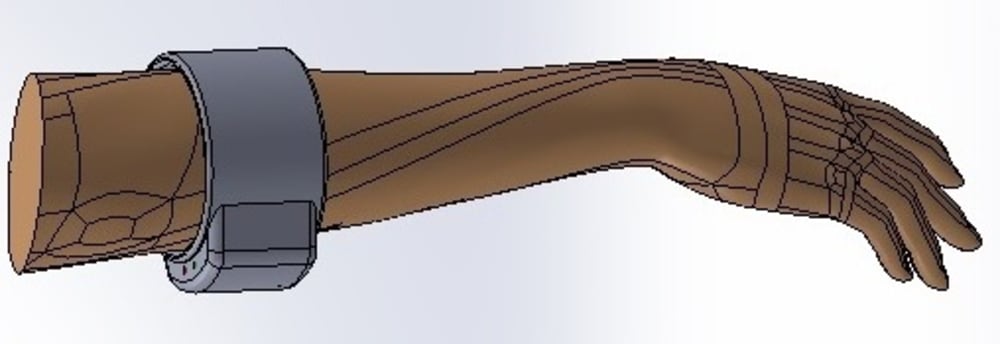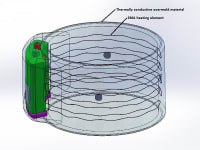Numerous studies done in the area of cold temperature impact on the hands’ dexterity site serious implications of effects from working in these types of environments. Even after a short period of exposure, workers exhibit a reduction of manual dexterity which could lead to an increased number of accidents as well as possible physical tissue damage. In general, it is noted that from a physiological point of view, severe cold causes a vasoconstriction of the individual 's arteriovenous anastomoses (AVA) which supply blood to the superficial veins . Once this occurs the blood flow does not reach the superficial veins from the arteries and the bulk of the blood flow returns to the body through the deep veins closer to the arteries. This is commonly known as physiological amputation. Below 15 degrees C (59 degrees F) skin temperature, finger dexterity decreases sharply. Research to show improvement of blood flow to the hands by maintaining or increasing one's core temperature has had some positive results in controlled experiments . Though this does show one plausible method of maintaining blood flow to the hands , the practicality of devising heating systems for the torso would prove to be too costly , cumbersome and reduce maneuverability of the worker due do not only the heating element (s) but the power and control system needed for such a system.
Research that has been done over the years in the field of the effects of performance and dexterity of the hands in cold temperatures has not resulted in any promising practical solutions to the reduced functionality of hands due to prolonged exposure to cold temperatures. Recently, however, there has been some research done by various groups including the DOD that has shown that, with the application of controlled heat to the forearms, it was found the AVA would be less susceptible to vasoconstriction during cold temperature exposure.
With the revelations from this research as well as using new advancements in smart materials and control electronics, I have developed a high-tech conceptual solution that will be temperature adjustable, waterproof, dustproof, durable and wirelessly rechargeable. The HAND (Heat Adjustable Non-glove Device) will be capable of maintaining the user’s hand temperature for extended periods of time in cold environments. For the heating element of this apparatus, it is the unique use of smart materials known as Shape Memory Alloys (SMAs), that would be ideal and a shift from the primary intended function of this material, which is high strength to weight ratio actuation. Multiple advantages are brought to bear with the use of SMAs such as its extreme light weight, high thermal output, and even tactile feedback to the user.
Like this entry?
-
About the Entrant
- Name:Chuck Pfeiffer
- Type of entry:individual
- Software used for this entry:Solidworks
- Patent status:none





